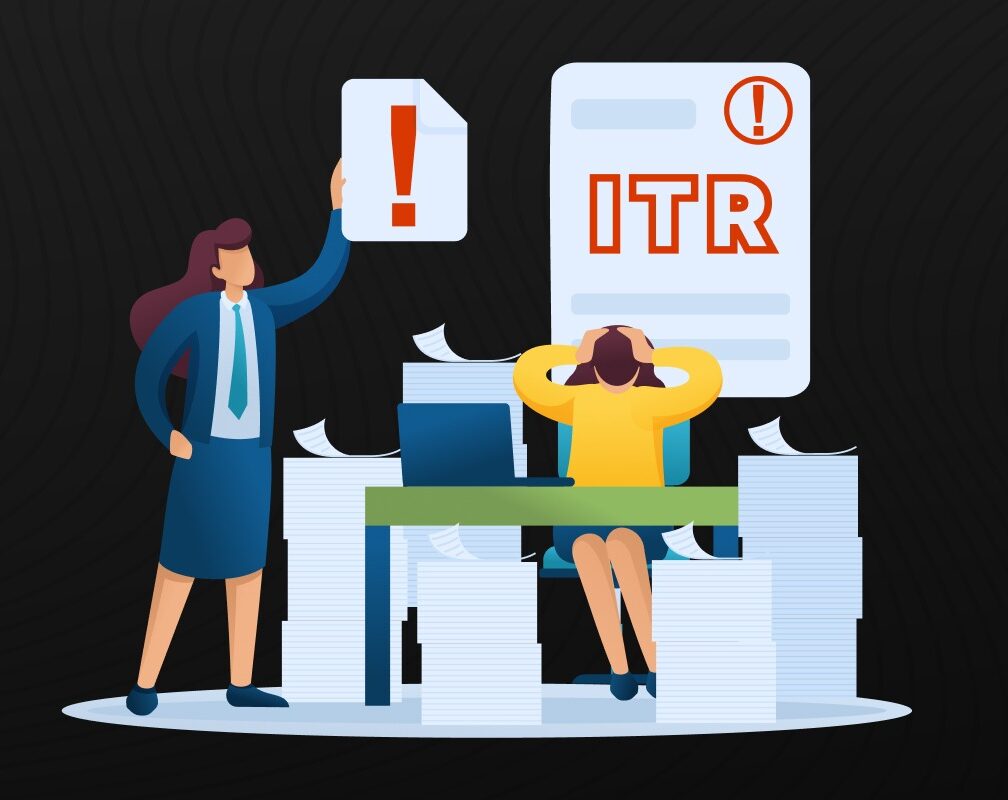Filing your Income Tax Return (ITR) is not just a yearly formality—it’s a financial responsibility. Done correctly, it can lead to timely refunds, peace of mind, and maximum deductions. But a few common oversights can drastically reduce your eligible deductions or even invite unwanted notices from the Income Tax Department.
Let’s break down the key mistakes that most individuals and business owners unknowingly make while filing their ITR and how you can avoid them.
Choosing the Wrong Tax Regime
Starting AY 2024-25, the new tax regime is the default. While it offers lower tax slab rates, it removes most exemptions and deductions like 80C (LIC, ELSS, PPF), 80D (health insurance), HRA, and home loan interest.
If you’re eligible for deductions under the old regime, you need to actively opt for it while filing. Salaried individuals should declare this through their employer or while filing the return. Forgetting to do so will automatically place you in the new regime, which could result in higher tax outgo.
Using the Wrong ITR Form
Each ITR form is designed for a specific type of taxpayer. Filing the wrong form may lead to a defective return notice, rejection, or delay in processing.
For example:
-
ITR-1: For individuals with only salary and interest income
-
ITR-2: For individuals with capital gains or more than one house property
-
ITR-3: For those with business or professional income
-
ITR-4: For presumptive business income under Sections 44AD, 44ADA, etc.
Understand your income profile and select the right form to avoid trouble.
Ignoring Form 26AS, AIS, and TIS
Form 26AS, Annual Information Statement (AIS), and Taxpayer Information Summary (TIS) provide a detailed record of your reported incomes, TDS, and high-value transactions.
If your ITR does not match the information in these reports, it could raise a red flag and result in a notice. Always reconcile your TDS, income from interest, dividends, capital gains, and other earnings with these documents before filing.
Not Verifying the ITR
Many taxpayers assume the filing process ends once the return is submitted. However, until the return is verified, it’s not considered valid.
You must verify the return within 30 days, either electronically (via Aadhaar OTP, net banking, EVC, etc.) or physically by sending a signed ITR-V to CPC Bengaluru. Missing this step means your return will be treated as not filed at all.
Filing After the Due Date
Late filing of ITR can cost you in multiple ways:
-
A fee of up to ₹5,000 under Section 234F
-
Interest on tax payable under Section 234A
-
Ineligibility for certain deductions
-
Delayed refunds
Even if you have no outstanding tax, filing late affects your financial record and may hinder future loan or visa applications.
Claiming Deductions Without Backup Documents
Claiming deductions without having the supporting documents is risky. If your return is selected for scrutiny and you can’t produce proof, your deductions will be disallowed.
Ensure you retain:
-
Investment proofs for 80C
-
Health insurance receipts for 80D
-
Education loan interest certificates
-
Home loan interest statements
Good documentation is the backbone of a secure tax return.
Missing Out on Other Income Sources
Many filers forget to report income from:
-
Savings bank interest
-
Fixed deposits
-
Capital gains from mutual funds or shares
-
Freelance income
-
Rental income
Leaving out these sources can lead to underreporting, notices, and penalties. Every rupee of income must be declared—even if TDS has already been deducted on it.
Conclusion
Filing your ITR isn’t a box-ticking exercise. It’s an opportunity to optimize your tax outgo, stay compliant, and plan better for the future. Avoiding common mistakes such as choosing the wrong regime, skipping verification, or failing to report income can go a long way in making the process smooth and beneficial.
Frequently Asked Questions (FAQs)
What if I forgot to choose the old tax regime?
If you haven’t opted for the old regime while filing, the system will default you into the new regime. Unfortunately, once the return is filed, it cannot be changed unless it’s a belated or revised return within the deadline.
Can I revise my ITR if I made a mistake?
Yes, you can file a revised return before the deadline (generally 31st December of the assessment year). However, frequent revisions or major changes may invite scrutiny.
What is the penalty for late ITR filing?
If your total income exceeds ₹5 lakh, the penalty is ₹5,000. If it’s below ₹5 lakh, the penalty is ₹1,000. You may also incur interest on unpaid taxes.
Is bank interest income taxable?
Yes, interest earned from savings accounts, FDs, or RDs is fully taxable. However, you can claim a deduction of up to ₹10,000 under Section 80TTA (only for savings interest).
Do I need to file ITR if my income is below the basic exemption limit?
If your income is below the basic exemption limit and no TDS has been deducted, filing isn’t mandatory—but it’s still advisable, especially for future loan applications or visa processing
